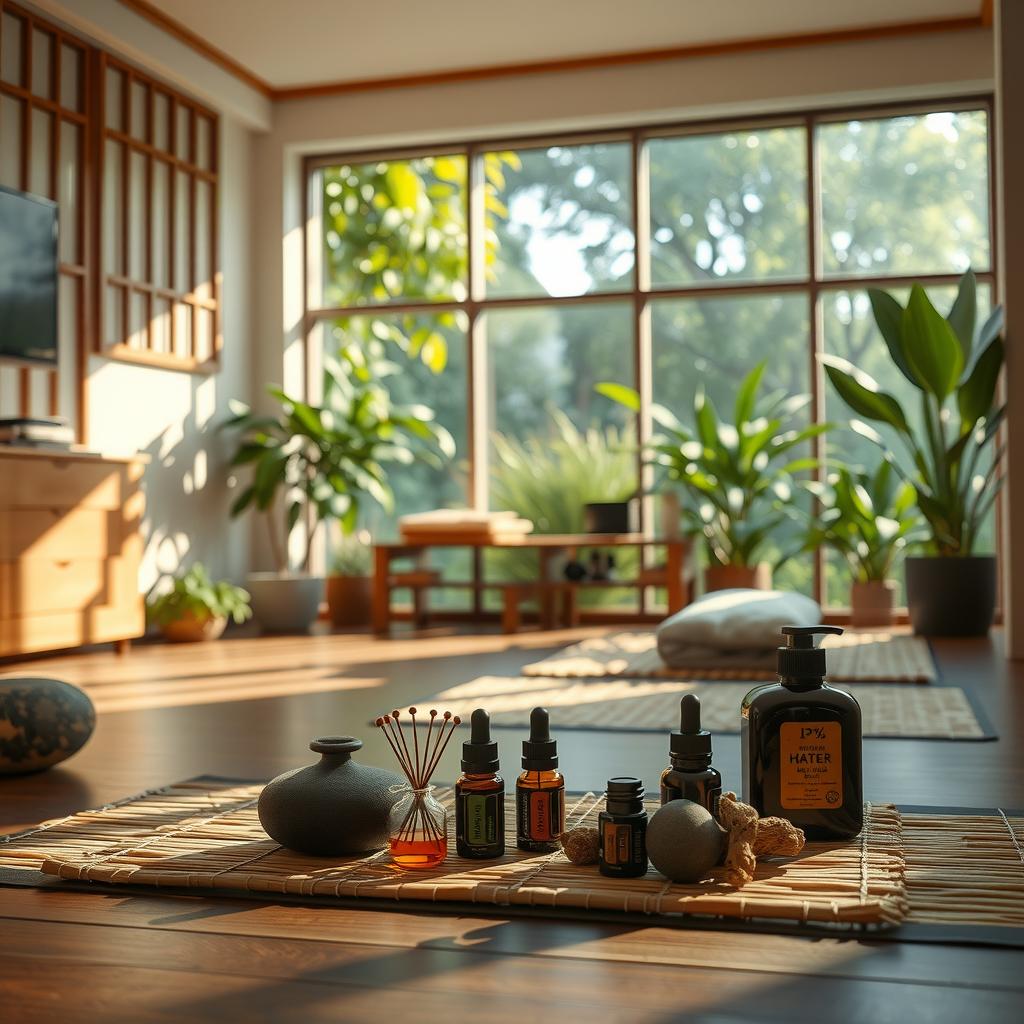In a world increasingly filled with choices for health and wellness, many individuals find themselves at a crossroads: how to transition from western medicine practices to exploring the rich landscape of alternative medicine. This shift is not merely about abandoning conventional treatments but rather an integration of diverse healing philosophies that cater to holistic well-being. The rising interest in natural healing methods, coupled with a desire for more personalized care, has prompted countless people to seek out insights into alternative therapies. For those who are novices in this journey, the vast array of options may appear overwhelming.
This article serves as a comprehensive beginners guide designed specifically for those contemplating this transformative path. It will delve into various aspects of transitioning to alternative medicine alternatives, providing readers with valuable knowledge and practical steps towards embracing wellness practices that resonate on multiple levels—physical, emotional, and spiritual. By understanding the core principles behind integrative therapy options and holistic health approaches, individuals can make informed decisions that align with their personal values and health goals.
The exploration begins by identifying common misconceptions surrounding alternative treatments while emphasizing their potential benefits alongside traditional healthcare solutions. This guide aims not only to demystify these concepts but also to empower readers by highlighting effective strategies for incorporating beneficial practices into daily routines. Throughout the discussion, there will be mentions of specific products such as herbal supplements or mindfulness tools tailored for beginners eager to embark upon this enlightening journey.
As we navigate through essential tips on making a seamless transition from western methodologies toward embracing alternative avenues—such as acupuncture, yoga, or nutritional therapy—we invite you to explore how these natural approaches can complement your existing healthcare regimen. Whether one seeks relief from chronic pain or desires improvements in mental clarity and overall vitality, understanding these options opens up exciting possibilities for achieving optimal health outcomes.
Join us as we unravel the essential elements involved when embarking on this rewarding path toward enhanced well-being—a step away from conventional norms towards discovering what truly resonates within each individual’s unique healing journey.

Key points:
-
Exploring Natural Healing Methods: The transition to alternative medicine can be an enlightening journey, offering various natural healing methods that complement traditional Western practices. This aspect of the beginners guide emphasizes the importance of understanding different modalities such as herbal remedies and dietary adjustments that focus on enhancing overall wellness. By integrating these options into daily routines, individuals can begin crafting a holistic health approach that respects both their physical and mental well-being.
-
Understanding Integrative Therapy Options: One major takeaway from the how to transition to alternative medicine beginner’s guide is recognizing the value of integrative therapy options. These therapies bridge the gap between Western medicine alternatives and complementary practices like acupuncture or mindfulness meditation. Readers are encouraged to explore how these diverse treatments can coexist with conventional healthcare methods, ultimately leading to a more comprehensive view of personal health management.
-
Adopting Wellness Practices for Beginners: The shift towards alternative medicine does not have to be abrupt; rather, it can start with simple wellness practices for beginners highlighted in this guide. Techniques such as yoga, breathing exercises, and nutrition-focused changes serve as practical entry points into holistic living. By gradually incorporating these practices into one’s lifestyle, individuals may find themselves developing a deeper awareness of their bodies’ needs while fostering a balanced state conducive to better health outcomes.
By utilizing insights from this beginners guide, readers will feel empowered in navigating their unique paths toward enhanced well-being through informed decisions about combining traditional care with innovative approaches found within alternative medicine.

Introduction: Understanding the Shift
The Rising Tide of Alternative Medicine in Modern Wellness
In recent years, there has been a notable shift toward alternative medicine, captivating the interest of many individuals seeking holistic health approaches to enhance their well-being. This growing fascination with natural healing methods can be attributed to various factors, including dissatisfaction with conventional treatments and an increasing awareness of integrative therapy options that emphasize patient-centered care. As people become more educated about different wellness practices for beginners, they often find themselves exploring western medicine alternatives that align better with their personal values and lifestyle choices. Notably, this transition towards alternative medicine is not merely a trend but reflects a deeper cultural movement emphasizing self-care and overall wellness.
For those contemplating this journey into the realm of alternative therapies, it is crucial to have a reliable beginners guide on how to transition to alternative medicine effectively. Such guidance can demystify common misconceptions surrounding these practices while providing practical steps for incorporating them into daily life. For instance, individuals might start by researching various holistic modalities—such as acupuncture or herbal remedies—that resonate with them personally. Engaging in community workshops or local health fairs can also facilitate connections with experienced practitioners who offer valuable insights into what these therapies entail.
Moreover, understanding the significance of mindset when approaching alternative medicine cannot be overstated; adopting an open-minded attitude fosters receptivity towards new experiences and ideas related to health management. Patients are encouraged to view their bodies as dynamic systems rather than mere recipients of treatment—a perspective central to many traditional healing philosophies around the world.
The appeal lies not only in achieving symptom relief but also in fostering long-term wellness through lifestyle changes that honor individual preferences and needs while integrating effective therapeutic techniques from both conventional healthcare and complementary fields alike. By embracing such principles within one’s routine alongside professional medical advice where necessary, aspiring participants may cultivate resilience against physical ailments while nurturing mental clarity—a hallmark characteristic prevalent among those engaged actively in pursuing comprehensive well-being strategies.
Ultimately, as society continues its exploration beyond established medical paradigms toward more inclusive frameworks prioritizing balance between body mind spirit connection—the conversation around how best one might navigate this evolving landscape remains vital for anyone eager enough yet cautious about diving deeper into unfamiliar territory filled with promise yet requiring discernment along every step taken on this enlightening path toward greater health fulfillment.
Exploring Natural Healing Methods: A Comprehensive Toolkit
The Rise of Holistic Practices in Modern Wellness
In recent years, the pursuit of holistic health has surged as individuals seek alternatives to conventional treatments. This trend reflects a growing awareness of various natural healing methods, including herbal remedies, acupuncture, and mindfulness techniques. These practices not only offer potential benefits for physical ailments but also foster emotional and spiritual well-being. Transitioning to alternative medicine can be daunting for beginners; however, a comprehensive guide can illuminate the path toward embracing these integrative therapy options. By understanding how different modalities work together within a holistic framework, individuals are empowered to take charge of their wellness journey.
Herbal Remedies: Nature’s Pharmacy
Herbal remedies have long been celebrated for their therapeutic properties and continue to play an essential role in many cultures worldwide. From chamomile tea’s calming effects on anxiety to turmeric’s anti-inflammatory benefits, plants offer diverse solutions that align with the principles of natural healing methods. For those new to this realm, it is recommended that they consult an alternative medicine beginners’ guide which provides insights into safe usage and preparation techniques. One should note that while herbal supplements may complement traditional treatments from western medicine alternatives like pharmaceuticals, they do require careful consideration regarding dosage and potential interactions with medications. Ultimately, incorporating herbal remedies fosters a deeper connection with nature while promoting personal empowerment over one’s health.
Acupuncture: Balancing Energy Flow
Acupuncture stands out among alternative therapies due to its unique approach rooted in ancient Chinese medicine principles aiming at restoring balance within the body’s energy systems—or Qi (chi). This practice involves inserting fine needles into specific points along meridians believed to influence bodily functions positively. Many who explore acupuncture report relief from chronic pain conditions or improvements in stress management; thus making it an appealing option for those seeking wellness practices for beginners. A transition into this form of therapy often necessitates guidance through reputable resources such as beginner’s guides dedicated specifically to acupuncture principles and techniques—allowing newcomers not only familiarity but confidence too.
Mindfulness Techniques: Cultivating Inner Peace
Mindfulness techniques represent another crucial aspect when delving into a holistic approach towards health restoration; focusing primarily on mental clarity and emotional resilience rather than solely physical symptoms aligns seamlessly with natural healing philosophies. Practicing mindfulness encourages individuals to remain present in each moment—a concept particularly beneficial amidst today’s fast-paced lifestyles filled with distractions from technology or stressful commitments. Techniques such as meditation or deep-breathing exercises help cultivate awareness while reducing anxiety levels significantly over time—a vital insight found within any thorough alternative medicine beginners’ guide devoted explicitly towards psychological well-being alongside other wellness practices suitable for novices interested exploring integrative therapies further.
Conclusion: Embracing Holistic Health Approaches
As society continues evolving towards recognizing interconnectedness between mind-body-spirit dimensions regarding overall wellness outcomes—exploring various holistic approaches forms an integral part therein! Whether embarking upon journeys through herbal remedies enhancing physiological responses or engaging deeply via mindful living traditions—the core tenet remains steadfastly centered around empowering oneself holistically throughout life stages experienced ahead! Therefore allowing adequate space underlining importance educating oneself effectively utilizing available resources serves paramount purpose navigating pathways leading fulfilling healthier lifestyles ultimately guiding transitions gracefully away conventional paradigms toward betterment thriving endlessly enriching experiences gained during explorations undertaken collectively highlighting significance integrating these timeless wisdoms proactively daily ensuring authenticity prevailing harmoniously uniting energies flowing freely naturally aligning individual aspirations resonating universally alike without exception whatsoever truly embodying essence complete wholeness attained realized effortlessly effortlessly all encompassing beautifully woven tapestry shared existence illuminating brighter paths forward unfurling limitless potentials awaiting discovery beyond horizons envisioned!
Integrating Traditional and Alternative Approaches: Creating a Balanced Health Journey
Embracing a Holistic Health Approach
In today’s world, more individuals are seeking ways to enhance their overall well-being by integrating traditional healthcare with alternative therapies. This holistic health approach not only addresses physical ailments but also considers mental and emotional aspects of health. Transitioning to alternative medicine can seem daunting for beginners; however, it is essential to recognize that this journey can be made smoother through informed choices and gradual steps. A beginner’s guide on how to transition into alternative medicine highlights the importance of understanding various alternative therapy options, such as acupuncture, herbal remedies, or mindfulness practices.
As one embarks on this transformative path, it is advised that initial consultations with both conventional healthcare providers and practitioners of alternative therapies occur simultaneously. By doing so, individuals can gain insights from multiple perspectives while ensuring safety in combining treatments. To facilitate an effective transition, one might consider maintaining a wellness journal to track symptoms and responses to different methods—this practice helps illuminate which techniques resonate most harmoniously with the individual’s lifestyle.
Moreover, incorporating natural healing methods could significantly benefit those looking for western medicine alternatives without entirely abandoning traditional approaches. For instance, someone suffering from chronic pain might explore integrative therapy options like yoga or guided meditation alongside prescribed medications. It is crucial for beginners in this realm to remain open-minded yet discerning about what they choose to adopt into their regimen.
Additionally, engaging in community workshops focused on wellness practices for beginners fosters an environment rich in shared experiences and knowledge exchange among participants who are navigating similar paths towards improved health outcomes. These interactions serve as encouragement when facing challenges inherent in transitioning away from familiar medical practices toward embracing new methodologies that promote self-healing.
Ultimately, creating a balanced health journey lies within each individual’s hands—the synergy between conventional care and natural remedies offers promising avenues worth exploring further. As newcomers delve into these realms armed with resources like beginner’s guides tailored specifically towards the transition process—patience will pave the way toward achieving lasting benefits.
The Role of Integrative Therapies
Integrative therapies stand at the forefront of modern wellness initiatives designed for those keen on merging elements of traditional healthcare with innovative approaches rooted in ancient wisdoms or contemporary research findings alike. For many seeking relief from stress-related conditions or chronic illnesses—a strategic blend often referred to as “integrated care” emerges as an appealing solution promoting healthier lifestyles holistically rather than focusing solely on symptom management via pharmaceuticals alone.
To commence effectively transitioning into these alternative realms requires educating oneself about various modalities available today—from aromatherapy using essential oils renowned for their calming effects—to nutritional adjustments emphasizing whole foods over processed items known detrimental effects linked too many common diseases today! Each small step taken contributes significantly towards building resilience against future ailments while enhancing vitality across diverse aspects life encompasses!
For those eager learners willing dive deeper beyond surface-level information regarding these integrative strategies; participation local meetups featuring guest speakers knowledgeable field provides invaluable firsthand insight directly benefiting personal growth along newfound journeys healing discovery awaits just around corner! By intertwining foundations laid upon established medical principles coupled insightful teachings derived holistic paradigms citizens empowered become architects own destinies ultimately transforming lives brighter futures await ahead empowering each person reclaim authority over mind body spirit aligned unity purposefully striving live fullest potential possible every day!
The journey toward embracing alternative medicine can be both exciting and overwhelming for those accustomed to Western medicine. With the comprehensive resource titled How to Transition to Alternative Medicine: A Beginner’s Guide, individuals are equipped with essential insights that facilitate this shift. The guide emphasizes understanding various natural healing methods such as herbal remedies, acupuncture, and meditation techniques—all designed to enhance overall well-being. By gradually integrating these practices into one’s health regimen, readers will find themselves better positioned to navigate their wellness journey confidently.
One of the fundamental steps highlighted in the beginner’s guide is cultivating an openness to learn about different holistic health approaches. As individuals explore alternatives, they may discover unique modalities that resonate with them personally—transforming their perspective on health care from a purely clinical approach towards one that incorporates integrative therapy options. This exploration not only empowers individuals but also encourages them to make informed choices tailored specifically for their needs. The transition becomes less about abandoning familiar practices and more about enriching one’s toolkit with diverse wellness practices suitable for beginners.
As readers delve deeper into the world of alternative therapies, it is crucial to maintain dialogue between conventional treatments and new approaches. The beginner’s guide serves as a valuable resource by providing practical advice on how best to weave together Western medicine alternatives alongside complementary methods without conflict. This integration fosters a balanced view of health care where both body and mind are honored—a principle central to any successful holistic strategy aimed at achieving optimal well-being.
FAQ:
Q: How can I start transitioning from Western medicine?
A: Begin by exploring natural healing methods outlined in guides like How to Transition to Alternative Medicine: A Beginner’s Guide, which provides insights into various holistic practices suitable for beginners.
Q: Is it necessary to abandon Western medicine when trying alternative therapies?
A: No, transitioning does not require abandoning Western approaches; rather, it’s about integrating both traditional care methods and alternative therapies for a more comprehensive understanding of personal health.
Q: What types of wellness practices should beginners consider?
A: Beginners might consider exploring herbal remedies, acupuncture techniques, or mindfulness meditation as part of their transition plan while utilizing resources like the beginner’s guide for further understanding.

Add a Comment